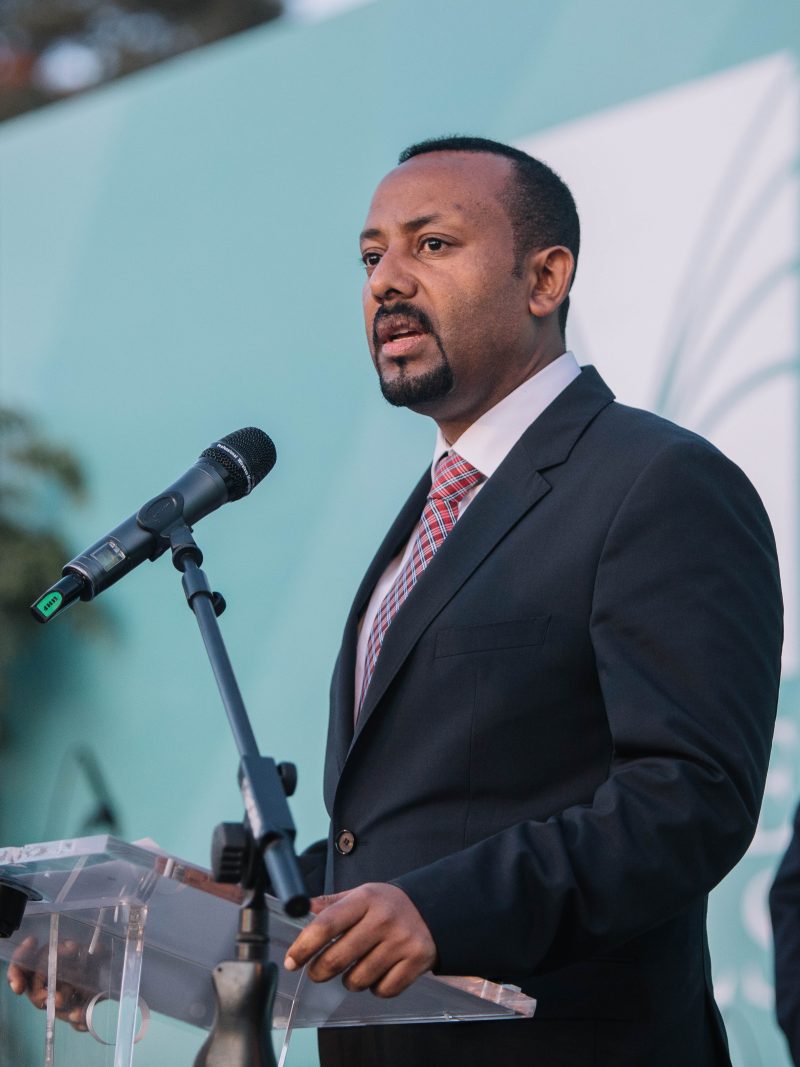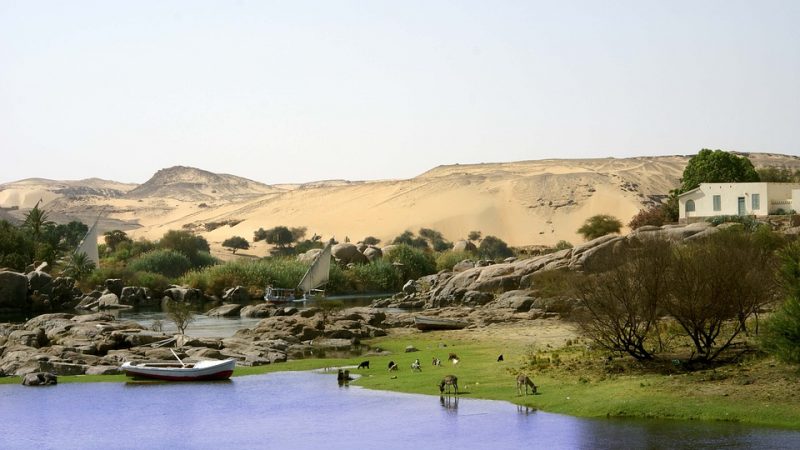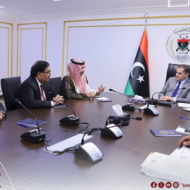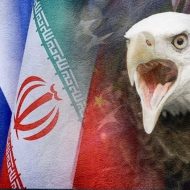On May 19, Sudanese Prime Minister Abdalla Hamdok held talks with his Egyptian counterpart Mustafa Madbouli on the Nile dam project in Ethiopia (Grand Ethiopean Renaissance Dam – the GERD). The Ministers for Foreign Affairs and Water Resources of the two countries also took part in the conversation.
“In a teleconference meeting, Sudanese Prime Minister Abdalla Hamdok and his Egyptian counterpart Mustafa Madbouli discussed ways to push forward the talks over the Nile dam with the presence of the three countries soon,” the Sudanese Council of Ministers said.
Last week, the Sudanese Prime Minister sent a letter to his Ethiopian counterpart, Prime Minister Abiy Ahmed, calling for a return to negotiations.
“Sudan’s prime minister will telephone Ethiopian Prime Minister Abiy Ahmed to consult with him on resuming the tripartite meetings as soon as possible,” the Sudanese government added.

The root of the problem
Negotiations on the GERD ceased after Ethiopia refused to sign an agreement with Egypt and Sudan in February 2020 which had been reached through the mediation of the United States (and personally President Donald Trump) and the World Bank.
The $4.5 billion the GERD is Ethiopia’s largest infrastructure project, and could provide it with the cheap electricity needed for industrial development. Ethiopia could also become the largest exporter of electricity in Africa and use reservoir water for agricultural purposes.
The hydropower plant, if built, would be the largest in Africa. In April, the Ethiopian leadership promised to launch the project in July this year.
However, for Sudan and especially Egypt, whose economic well-being depends on access to the Nile’s water, the hydropower plant could cause economic and social collapse. Experts estimate that Ethiopia’s implementation of its project may bring up to a billion dollars in losses for the agricultural sector of Egypt and Sudan. The populations of both countries are growing, and production and agriculture are as well. Water is needed more and more, and the Nile is becoming polluted, which increases the problem of lack of clean drinking water. The Ethiopian dam is becoming a matter of life and death for Egypt and Sudan.
Egypt’s claims against the dam are based on colonial-era treaties and an agreement signed with Sudan in 1959, but Ethiopia does not recognize this treaty. As far back as 1978, when the proposal to build a series of dams on the Nile was first made in Addis Ababa, Egypt threatened war. Later, the possibility of military use of the problem was voiced by Mohammed Mursi, and after him by Abdel Fattah el-Sisi. Regardless of the political regime in Egypt, Cairo has always been opposed to the dam and signaled that it is ready to use force if its interests are not recognized.
In 2015 Egypt, Ethiopia and Sudan signed the Declaration of Principles on the GERD. However, the attempt to establish a long-term partnership between Egypt, Ethiopia and Sudan has failed. Ethiopia later tried to break up the Sudan-Egypt bloc by offering Khartoum favorable terms for the supply of electricity in exchange for weakening its position. This spring, however, Sudan’s Ministry of Irrigation said it opposed Ethiopia’s proposal to begin filling the reservoir in July this year.
Sudan’s role
UN Secretary-General António Gutteres welcomed Sudan’s initiative to resume tripartite talks on the GERD.
“The Secretary-General underscores the importance of the 2015 Declaration of Principles on the GERD, which emphasizes cooperation based on common understanding, mutual benefit, good faith, win-win, and the principles of international law,” said the spokesperson for the Secretary General.
Secretary-General @antonioguterres continues to follow closely developments related to the Grand Ethiopian Renaissance Dam (GERD). He notes the good progress in the negotiations between #Egypt, #Ethiopia #Sudan thus far. Full statement:https://t.co/IWX2YcBwKe pic.twitter.com/vjV9pNDWje
— UN Political and Peacebuilding Affairs (@UNDPPA) May 19, 2020
So far, however, the Ethiopian side has shown little enthusiasm or willingness to compromise.
Ethiopian Foreign Minister Gedu Andargachew sent a letter to the UN last Monday stating that his country “sees no reason to postpone filling the reservoir at the Renaissance Dam,” Sky News Arabia reported. Such a negotiating position is leading to conflict and puts Egypt and Sudan in a difficult situation.
On the other hand, the lack of support from Sudan, on which Ethiopia has clearly relied recently, makes it difficult for diplomatic maneuvers. In general, in the Cairo-Addis-Ababa-Khartoum triangle, the Sudanese occupy privileged positions as initiators of negotiations and as a country on whose position much depends. On the one hand, Sudan shares Egyptian concerns, and on the other, it can claim electricity from a hydropower plant located along its border.
The convergence of Egypt and Sudan at a certain point opens up a military solution for Cairo to bomb the GERD. The relationship could serve as a powerful incentive for pressure on Ethiopia. Egypt has no border with Ethiopia, but a sabotage raid or bomber flight could be launched from Sudan.
On May 4, four warplanes carrying medicine were sent by Egyptian authorities to Sudan as part of the fight against the spread of coronavirus infection. Next time, however, the planes may also be carrying some non-medical supplies.
However, it is also obvious that Cairo (and especially Khartoum) would like to avoid this scenario (in case of war with Ethiopia, it is obvious that it is Sudan that will be hit back). Therefore, both countries will use all mechanisms of international pressure, from the UN to the Arab League, up to sanctions against Ethiopia.
From the other point of view, Sudan’s position will be a natural deterrent for Egypt. Sudan is in a unique position, as according to a study by Egyptian scientists in 2017, the GERD will increase the recharge of water in the ground waters in the Gezira area “because it will keep the water in the Blue Nile always at a high level all year round, resulting in increasing the seepage to the aquifer. The agriculture in Sudan will also be all over the year, so water infiltration to groundwater will be increased”.
Thus, the consequences of the construction of the dam for Sudan are not so disastrous, unlike in Egypt and, moreover, may even provide certain advantages for agriculture.
Thus, Sudan may actually be interested in establishing the GERD. However, it is important for it that Ethiopia agrees on the filling of the reservoir with it and Egypt.
Understanding each other
Ethiopia, however, should not underestimate Egypt’s capacity for a military solution to the dam problem. This is a last resort, but if Ethiopia continues its policy of non-compromise, Egypt will have no option other than war. Either Egypt will launch an airstrike, declare a full-scale war on Ethiopia, or use separatist forces in Ethiopia to incite civil war and support Eritrea in its territorial disputes.
If the Egyptian leadership retreats and obeys the accomplished fact, avoiding war and the possible losses, it will suffer significant reputational losses. Already, the opposition accuses the president Abdel Fattah el-Sisi of being too lenient on Ethiopia and claims that Abiy Ahmed deceived him.
Although various aspects of the construction of the new Ethiopian hydropower plant on the Blue Nile are being actively discussed by Egyptian and Ethiopian experts, it is clear that the parties are unwilling to understand each other’s positions.
The Ethiopian side very often claims that Egypt could partially replace the water of the Nile, which it will not be able to supply by using groundwater. In this regard, they invoke the Libyan Great Man-made River (GMMR) Project, which was implemented by Muammar Gaddafi.
It is forgotten that Gaddafi’s project was designed to supply several cities in the country with a population of 6.3 million people, whereas almost 100 million people live in Egypt. It is also important that the Nubian sandstone aquifer, which is proposed to be used by Egypt for water production, covers the territories of Egypt, as well as parts of Libya, Chad and Sudan. Containing about 150 thousand km³ of ground water of Nubian sandstone aquifer is of extreme importance for future programs of development of potential water resources of these countries, and therefore large-scale use of ground water by Egypt can lead to conflicts already with these countries. In other words, the proponents of such a “solution” propose to replace one conflict with another.
It should not be forgotten that the extraction of these waters, not all of which are suitable for drinking or agricultural use, is very costly.
Egypt is also trying to develop seawater desalination projects. However, according to the experts, the total capacity of such enterprises by 2035 will be about 1 billion cubic meters of water per year. Egypt has the current Nile quota of 55.5 billion. The water of the Nile cannot be replaced by any means.
Ethiopia, on the other hand, is right in its outrage at the unequal distribution of the Nile’s water resources. Indeed, the existing agreements concerned Egypt and Sudan and made no mention of any rights of Ethiopia and other countries where the Nile’s water sources were located. This is a ridiculous situation: to control the source and not have the right to use its resources. This is why Ethiopia initiated the Nile Basin Initiative (NBI), Cooperative Framework (CFA) in the 1990s and early 2000s. As a result, Ethiopia was able to unite around the idea of cooperative water use in the Nile, Rwanda, Tanzania and Uganda, Kenya and Burundi. However, Egypt and Sudan are missing from the list, as are several Central African countries in the Nile Basin.
An honest and open dialogue between Egyptian and Ethiopian experts on all problematic issues is required to try to find some points of compromise, perhaps even via a third country.
This situation requires a comprehensive approach. Sudan is a country that has a natural interest in resolving the conflict between its neighbors, Ethiopia and Egypt. However, its efforts will clearly not be sufficient if they are not supported.
Sudan cannot be a mediator in the full sense of the word, since it is a party to the dispute. This was previously stated by the Sudanese Minister of Irrigation and Water Resources Yasser Abbas. However, Sudan can initiate a new round of negotiations, which it is currently doing.
Overall, the international community must pay more attention to and support Sudan’s efforts, up to the development of penalties for those involved in the Nile negotiations that violate previous agreements. If successful, this will strengthen the position of the new Government of Sudan in the international arena and demonstrate that the country now plays a constructive role in politics in the region. If Sudanese leaders succeed in the GERD negotiations, they will be worthy of the Nobel Peace Prize for preventing war on water resources in Africa.
However, the GERD issue is part of a wider question – water use in Africa. How can we put an end to a clearly unjust colonial legacy, but also not jeopardize the lives of millions of people who depend on natural resource management principles that have emerged in recent decades? The failure of international mediators, including the United States, demonstrates that African problems must be solved by Africans themselves. No one from outside will be able to build a fair system of water use. However, the African Union’s (AU) near total removal of itself from the GERD issue shows that African leaders may not yet be ready to find solutions to such complex issues themselves.









I couldn’t resist commenting. Very well written!
Awesome Information!!! Thanks to Admin for sharing this. I visited many pages of your website. Really your Blog is Awesome. Keep Sharing such good Stories. Thanks.